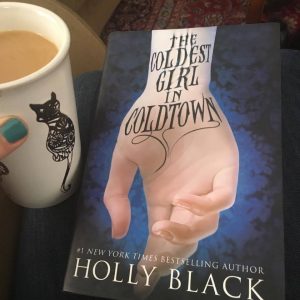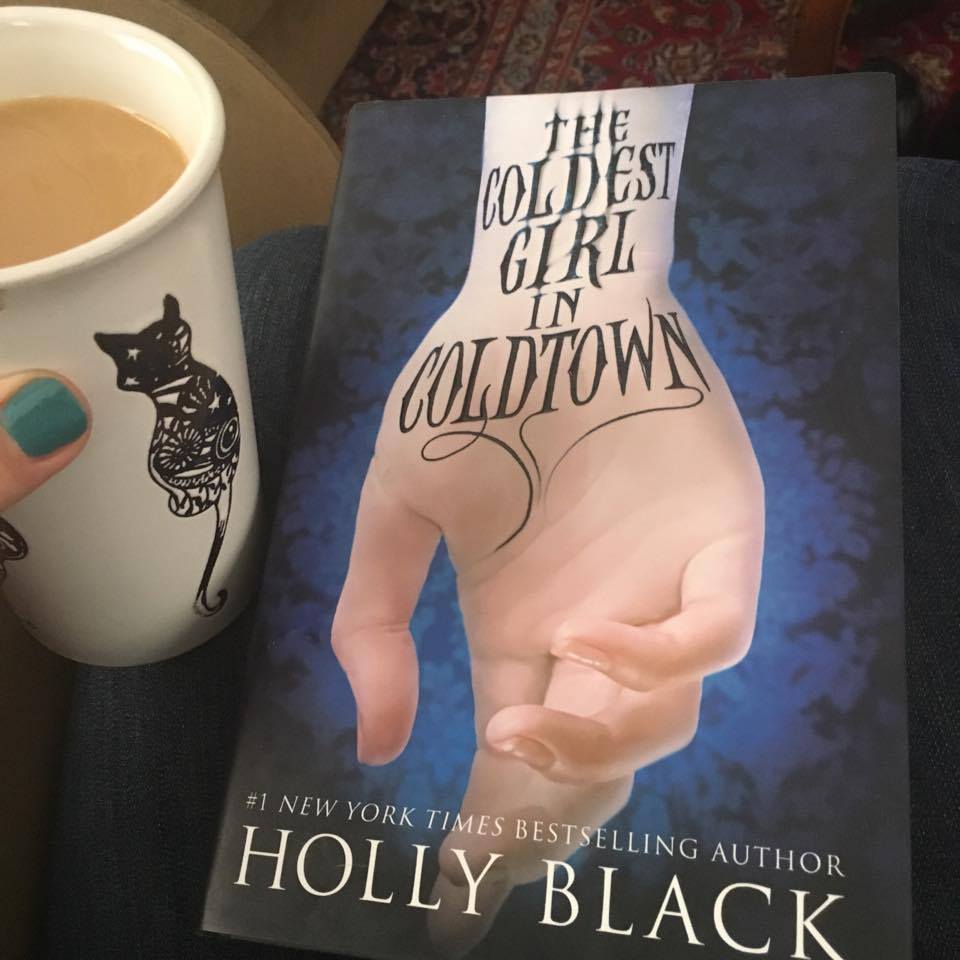
*SPOILER ALERT* This is my friendly warning that I might ruin the story for you if you haven’t read it. Arachne Reads is a discussion, not a teaser.
If you’re a Holly Black fan, you know that her writing is vibrant, dark, imaginative, and super down to earth. I’m a big fan, and I’m also a vampire lover. So I’m a little ashamed of how long it took me to finish this book. I started it MOONS ago. Really, I can’t count. I’m a pretty fast reader, and I enjoyed every single page of it, so it doesn’t make sense to me that I couldn’t just plow through it like I wanted. Maybe it’s because the storytelling is what I would call densely layered. It’s complex in ways that YA fiction is sometimes not. And yikes! I hate saying that because some people will think I’m being insulting to YA. So just in case that’s you, and in case you don’t know me yet, Hi. I’m a YA fanatic. My MFA focused almost solely on YA. And I look for YA that is layered and complex, specifically so that I can yap about it and talk it up. And Holly Black just takes that a few steps deeper with setting and character for me. I think she’s a role model for depth in YA. And I think that’s why I took so long with this book. I’m usually a very fast reader, but I just kind of wanted to savor my time in Coldtown.
The Coldest Girl in Coldtown is exciting because it’s a vampire book that doesn’t fall into any of the other traps that vampire books fall into. It doesn’t seek to vastly recreate vampire lore, and at the same time, it doesn’t force itself into any old school vampire rulebooks. I love that. I’m tired of people thinking they have to totally reinvent vampires. I mean, DO put your own spin on them if you can do it in a way that gets people’s attention. But don’t forget that vampires can be gross and scary. Coldtown vampires aren’t pretty and they even smell bad, but they’re strangely charismatic, which for me was a return to the good old days when vampires didn’t sparkle. What did sparkle, in my opinion, was Black’s use of vampires in creating this setting.
This book is set in a world where vampires are an everyday fact of life, and not one that you can afford to not talk to your children about. Vampirism is an infection, and Coldtowns are walled off cities where the authorities have attempted to isolate the infected. Using a biological explanation for monsters like vamps and zombies is nothing new, but instead of the usual barren post-apocalyptic city imagery, Black’s Coldtowns are pumping with life after death. Coldtowns are smallish, but HUGE. Black utilizes a vertical landscape that disoriented me as a reader to stage these epic (and also sometimes disappointingly short) vampire showdowns. All with live-streaming social media to record all the decadence and distort the hysteria. Coldtown is enigmatic to the people outside the walls. And to the people trapped inside? Coldtown is suffocatingly smalltown. I could go on forever about the contrasting elements, and what that says about the distance between (or relative closeness of) what the characters want and what they actually get, and also about temptation and being your own worst enemy. But you really should read it for yourself.
As always, Holly Black delivers a cast of likable misfits. Tana, the heroine of Coldtown, has a haunting backstory that drives her through the plot. (A plot that is actually driven by multiple characters and can be very easily imagined from their points of view, which she gives you a taste of. I just noticed I’m making eating references: savor, taste. Because that’s what Coldtown was for me. A vampiric feast.) As a child, Tana’s mom became infected with vampirism, and she attacked Tana during her detox phase, leaving Tana with physical, mental, and emotional scars. While Tana obviously survived, she does carry that trauma with her throughout the book. I think Tana’s trauma was what made her believable as a character. Her greatest fear is having to endure the torture she witnessed her mother go through and becoming a vampire. We instinctively know that THIS is the thing she will have to face in the end. Fear has a way of freezing some people. And yet, Tana’s fear does not stop her from acting. It drives her to action: some foolish and some very brave. For instance, Tana tries to save others and save herself. And while most readers know we can’t help those who don’t help themselves, we understand her desire to do “the right things,” even if it points to her own undoing, and we willingly follow her through the story. It’s an example of a character whose greatest fear feeds her greatest strength AND her greatest weakness at the same time. If you can do this as a writer, you will have readers hooked. It also demonstrates how backstory should drive a character in a relevant way that increases tension and ties in with the question or the theme of the book. This story would have felt a lot less urgent (emotionally speaking) if Tana’s mom hadn’t been a vampire, if she hadn’t been killed, and if Tana hadn’t felt responsible for any of it. Only Tana could have had told this story this way. It’s not generic or coincidental at all. It’s specific. And that specificity is what we’re turning the pages for.
There’s so much more you could say about this book, but those are the bits that are running through my mind at the moment. As a writer, reading critically doesn’t always means ripping things to shreds. I think you can learn as much if not MORE from the stories you loved, and that’s what I strive to do. This was a really masterful use of setting and character backstory. I hope you enjoyed the book as much as I did, and I wonder what else you thought was really well done! If you care to share, please leave a comment.

Leave a Reply